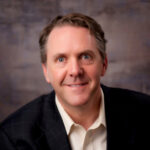Making Grace Functional in The Workplace
Proverbs 25:11 “A word fitly spoken is like apples of gold in a setting of silver.”
The question that underlies my work is one Max De Pree presented to his executive committee: What would grace enable the organization to become? It seems like an odd question in a capitalist system. I claim it is absolutely necessary for the business context of the future. Why? While technology is enabling massive changes in business, what’s happening ultimately isn’t about technology. Instead, it’s about the way technologies are putting human values at the center of business decisions.
I would argue that we stand no chance of realizing moral purpose in economics until we learn to create conditions in which human potential flourishes—by which I mean making common grace functional in the workplace. Attempting to unpack this idea in a single blog is impractical. That’s going to take place over many writings. But you can make it useful starting today, or certainly Monday.
First, though, a glance at sad reality.
What Really is Going On (I’m Not Making This Up)
I had a remarkable meeting with a group of 14 business leaders to address concerns over their “limited supply of talent.” All were working to minimize Dilbert problems.
The current strategy was to simply raid the talent of a competitor. Some of these leaders, and many others, were saying that it’s more expedient to lure talent from others than to develop and invest in the people they already had. I pointed out my own research depicted in the graphic below.
 What percentage of intelligence and creativity of the people in your organization do you think your organization actually uses?
What percentage of intelligence and creativity of the people in your organization do you think your organization actually uses?
Their answers mirror the research and underscored a feeling most people share: Organizations come nowhere close to realizing and taking advantage of people’s true potential. They felt this was a sad statement, and in the long term a losing strategy. It does nothing to expand your talent pool, and it ultimately assures you’ll lose your talent to a higher bidder. These leaders were quickly coming to the realization that its valueless to build offices, buy technology, and come up with different business models unless you have the people to grow the organization.
What Can Be Done?
I have a bit of simple advice: Provide development feedback in a timely, ongoing manner.
Most companies are still using the outmoded practice of giving individuals only an annual review. The person is given feedback against some goals that were set at the previous feedback session. Most managers look at the bottom line and rarely are developing the person. Since there’s no personal relationship, the employee leaves the company. Who could blame them!
Effective leaders, though, view performance feedback as a regular dialogue. Physicist David Bohm pointed out that dialogue means “the flow of meaning between or among us.” That happens only when we listen and respond to each other.
Such leaders demonstrate both and understanding of and commitment to the art of drawing someone out, of asking questions to which you don’t already know the answer, of building a relationship based on curiosity and interest in the other person. This is a critical skill and an indispensable attitude. In an increasingly complex, interdependent, and culturally diverse world, we cannot hope to understand and work with people from different occupational, professional, and national cultures if we don’t learn to ask better questions that help to build positive relationships. Through listening we learn what others value. When we learn this, it brings us to a higher level of understanding and appreciation of our own people and of those we can reach beyond the walls.
Effective leaders provide more than once-in-a-while, professional-level feedback. They also provide coaching on a personal level. As operating models of leadership change and combine within organizations, role management and career well-being grow in importance. For instance, a person may want assistance in a certain area such as developing networks, being a mentor or protégé, or handling life-family balance. Good leaders provide opportunities for these types of support. This way “feedback” becomes a continual movement toward realized potential. It’s this movement that will allow us to maximize our humanity both in the business world as well as in our personal world. Living an integrated personal and professional life has never been more important. If you can’t do that, you’ll get good talented workers who will be frustrated!
Practical Things To Do
- Demonstrate your belief that people can do their best.
- Acknowledge people’s accomplishments, existing strengths, or performance improvements.
- Determine the best time to give performance review, individual by individual.
- Focus on behavior, not on the person.
- Avoid mixing emotional responses with developmental feedback.
- Let people know what results are expected as they complete their work.
How To Do It
- When assigning work to a person, agree on a plan and follow-up with 1:1 performance feedback.
- Make time in your schedule. Make sure you and the person have time to listen and focus during the feedback.
- Conduct regular after-action reviews. Ask individuals what went well after key tasks or projects are completed and what they would do differently next time.
- Take a course to learn about different motivators of people and how to use them to propel performance improvement.
- Ask individuals how they would like to get feedback. Make notes and retain for reference.
- Make providing feedback part of your daily “To Do” list.
Idea Enaction: Based on feedback you get, do people in your organization feel you genuinely value their individual contributions? Why do they have these perceptions?
 Rob Long is the founder and managing director of CoVenture Consulting LLC. He is an organizational innovation consultant passionate about helping clients see/k emerging opportunities and business practices for making grace functional in the workplace—in the sense of making vivid God’s practical purposes for work and to create conditions in which human potential flourishes. He holds an Executive MBA in organizational economics from the Texas A&M Mays Business School.
Rob Long is the founder and managing director of CoVenture Consulting LLC. He is an organizational innovation consultant passionate about helping clients see/k emerging opportunities and business practices for making grace functional in the workplace—in the sense of making vivid God’s practical purposes for work and to create conditions in which human potential flourishes. He holds an Executive MBA in organizational economics from the Texas A&M Mays Business School.



